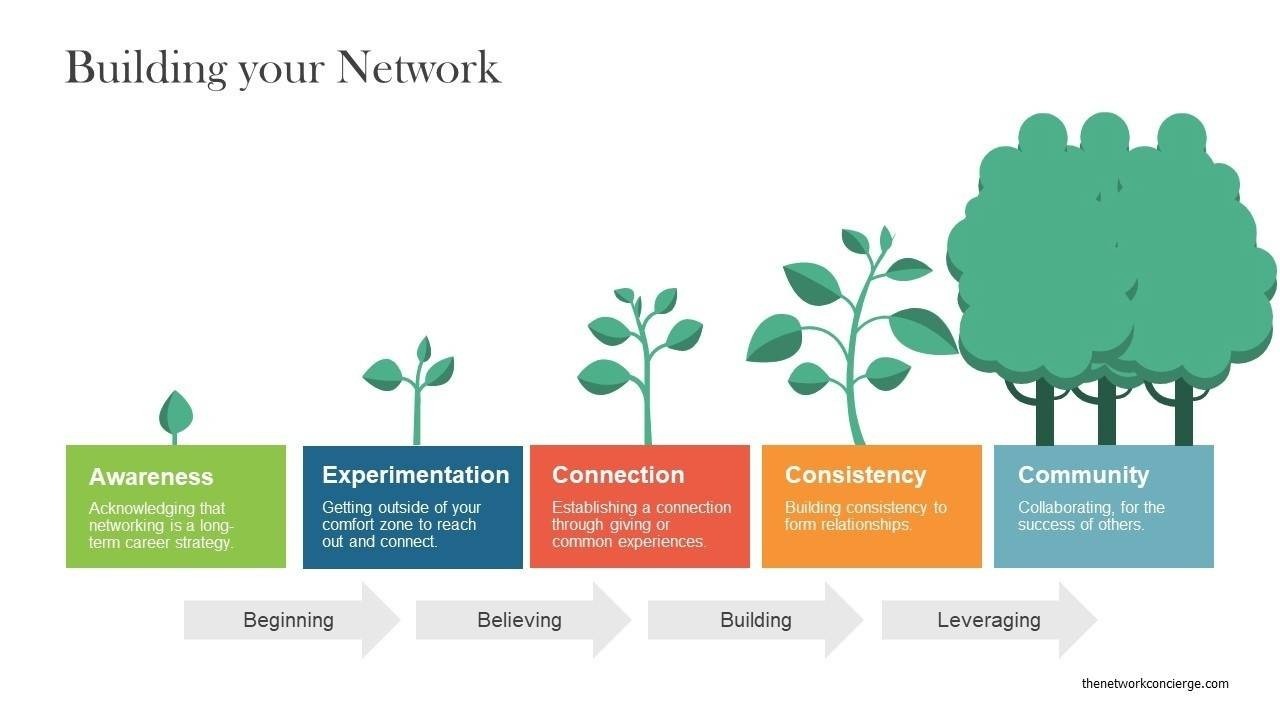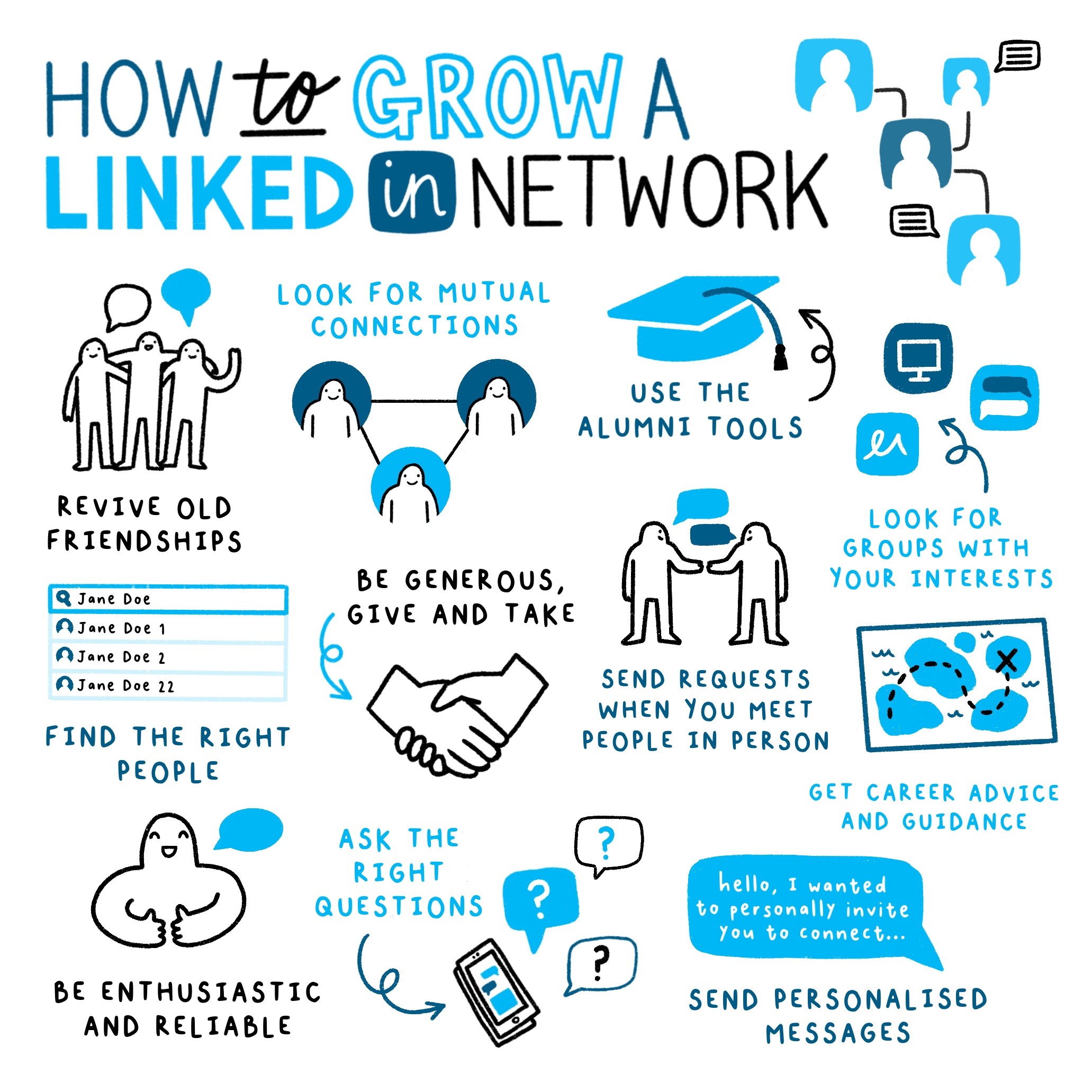
Networking Strategies for Career Growth

Networking Strategies for Career Growth: Building Your Professional Ecosystem
In today's dynamic job market, simply having the right skills isn't enough. You also need to cultivate a strong professional network, a powerful tool for career growth. Networking isn't about self-promotion; it's about building mutually beneficial relationships that can open doors to new opportunities, provide insights, and propel you forward in your career journey.
This article will explore effective networking strategies to help you build a vibrant professional ecosystem that fosters growth and success:
1. Defining Your Network Goals:
Before diving into the networking world, it's crucial to define your goals. What do you hope to achieve through networking? Do you aim to find a new job, gain industry knowledge, or secure mentorship? Clearly defined goals will help you target your efforts and build connections with individuals who can support your aspirations.
2. Expanding Your Circle:
a) Cultivating Existing Relationships:
Don't neglect the value of your current network. Reach out to former colleagues, classmates, professors, and mentors. Reignite those connections by offering help, sharing valuable information, or simply catching up.
b) Attending Industry Events:
Conferences, workshops, trade shows, and meetups are excellent venues for meeting individuals in your field. Take advantage of these opportunities to engage in meaningful conversations, exchange contact information, and follow up with newfound connections.
c) Leveraging Social Media:
LinkedIn is a powerful tool for building your professional network. Engage with industry influencers, join relevant groups, and connect with people who share your interests. Use social media to share valuable content, participate in discussions, and showcase your expertise.
d) Joining Professional Organizations:
Joining industry-specific associations and professional bodies offers numerous benefits. You'll gain access to exclusive networking events, industry resources, and opportunities for leadership development.
3. Building Meaningful Connections:
a) Go Beyond Business Cards:
Don't just collect business cards; invest time in genuine conversations. Show genuine interest in the other person's work, experiences, and aspirations. Ask thoughtful questions and actively listen.
b) Offer Value and Support:
Networking isn't just about taking; it's about giving. Offer your expertise, help others with their projects, and provide support when possible. This approach fosters strong, mutually beneficial relationships.
c) Maintain the Relationship:
Don't let connections go stale. Stay in touch with your network through regular emails, LinkedIn messages, or occasional phone calls. Show interest in their career progress and celebrate their successes.
4. Utilizing Networking Platforms:
a) LinkedIn:
LinkedIn is a powerful platform for building and nurturing your professional network. Use it to connect with industry professionals, share your expertise, and participate in relevant discussions.
b) Online Forums and Communities:
Engage with online communities related to your field. Participate in discussions, share your knowledge, and connect with like-minded individuals.
c) Networking Apps:
Explore networking apps designed for professionals. These apps facilitate connections, help you find relevant events, and allow you to connect with people based on your interests and goals.
5. Navigating the Networking Landscape:
a) Embrace the Fear:
Networking can be intimidating, but don't let fear hold you back. Remember that everyone starts somewhere. Approach networking with confidence and a willingness to learn.
b) Practice Your Elevator Pitch:
Develop a concise, engaging elevator pitch that effectively summarizes your skills, experience, and career aspirations. This will help you quickly connect with new people and make a lasting impression.
c) Follow Up and Stay Organized:
After meeting new contacts, follow up promptly with a thank-you note or email. Keep track of your connections and their details to maintain a strong professional network.
6. Beyond Networking: The Power of Mentorship:
Seek out mentors who can provide guidance, support, and valuable insights. A mentor can help you navigate career challenges, identify growth opportunities, and develop your professional skills.
7. Networking for a Lifelong Advantage:
Building and maintaining a robust professional network isn't a one-time event; it's a lifelong process. Continuously cultivate relationships, expand your circle, and remain active in your field. By investing in your network, you'll create a valuable resource that can open doors, enhance your career, and support your professional growth for years to come.
In conclusion, networking is an essential aspect of career success. By defining your goals, expanding your circle, building meaningful connections, and effectively utilizing available platforms, you can create a thriving professional ecosystem that propels you towards your ambitions. Remember that networking is a long-term investment in your career, one that will yield significant returns throughout your professional journey.

Here’s more about the topic discussed above:
Networking Strategies for Career Growth: Building Bridges to Success
In today's competitive job market, it's not just about what you know, but who you know. Networking is an essential skill for career advancement, allowing you to build relationships, gain valuable insights, and unlock opportunities that might otherwise remain hidden. This article explores effective networking strategies for career growth, from building your online presence to attending industry events and cultivating genuine connections.
1. Cultivate Your Online Presence:
- LinkedIn: Your LinkedIn profile is your digital resume. Ensure it's up-to-date, professionally written, and showcases your skills and experience. Actively participate in discussions, engage with relevant content, and connect with professionals in your field.
- Social Media: Use platforms like Twitter and Facebook to share your expertise, connect with influencers, and participate in industry conversations. Remember to be authentic and professional, building a positive online persona.
- Personal Website/Blog: Consider creating a personal website or blog to showcase your work, expertise, and thought leadership. This can be a powerful tool for attracting attention and establishing yourself as an authority in your field.
2. Attend Industry Events:
- Conferences and Workshops: These events provide valuable opportunities to learn, network, and connect with peers and industry leaders. Actively participate in discussions, ask insightful questions, and exchange contact information.
- Meetups and Networking Groups: Local meetups and networking groups focused on specific industries or interests can offer a more intimate setting for building connections. Participate regularly and actively engage with other members.
- Professional Organizations: Joining professional organizations related to your career field allows you to connect with other professionals, attend events, and stay up-to-date on industry trends.
3. Leverage Existing Connections:
- Your Network: Don't underestimate the power of your existing network. Reach out to friends, family, former colleagues, and classmates who might be working in your desired field or have connections that could be beneficial.
- Referrals: Ask for referrals from your existing network, specifically targeting professionals who are well-connected in your desired industry.
- Alumni Network: If you attended a university or college, leverage your alumni network for career guidance, job leads, and introductions.
4. Build Genuine Connections:
- Active Listening: Be a good listener and show genuine interest in others. Take the time to understand their experiences, goals, and challenges.
- Value-Driven Approach: Focus on offering value to others through your expertise, insights, and support. Be willing to help others achieve their goals.
- Follow Up: After meeting someone new, follow up with a personalized email or message expressing your appreciation for the conversation and offering your assistance.
5. Don't Be Afraid to Ask for Help:
- Mentorship: Seek out mentors who can provide guidance, support, and connections.
- Job Leads: Don't be afraid to ask your network for job leads or insights into open positions.
- Advice and Support: Reach out to professionals for advice and guidance on your career goals.
6. Embrace the Long Game:
- Consistency: Networking is a marathon, not a sprint. Be consistent with your efforts and actively build relationships over time.
- Patience and Persistence: Building strong connections takes time and effort. Be patient, persistent, and don't be discouraged by initial setbacks.
- Growth Mindset: View networking as a continuous learning process. Be open to new experiences, feedback, and opportunities.
7. Stay Authentic:
- Be Yourself: Authenticity is key to building genuine connections. Don't try to be someone you're not.
- Embrace Your Unique Strengths: Highlight your unique skills, experiences, and passions to stand out from the crowd.
- Be Yourself: People will appreciate your genuine self.
Conclusion:
Networking is an essential tool for career growth, providing access to valuable insights, opportunities, and support. By actively building your online presence, attending industry events, leveraging existing connections, and cultivating genuine relationships, you can unlock your career potential and achieve your professional goals. Remember that networking is a journey, not a destination. Stay consistent, be patient, and embrace the power of human connection to build a successful career path.
